IRB Profiles
-
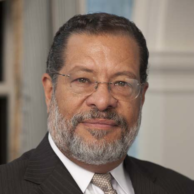
March, Erich
Civic-Minded Undertaker
March,
Erich

March, Erich
Civic-Minded Undertaker
The year was 1970. Erich March was a freshman at Johns Hopkins. The country was nearing the end of the Vietnam War. The university had just begun to admit women. Change was all around. Still, March was struck by the lack of diversity at the college he chose to attend. Despite all the changes underway around the nation, the institution he chose to further his education seemed back then to be stuck in time.
March was accustomed to being around African Americans as a native of Baltimore. His family owns the prominent March Funeral Homes, a mainstay of the city’s black community for more than 50 years. Suddenly, he was in a “lily white” environment. As March tells it, there weren’t many black undergraduates and even fewer graduate students at JHU. He can’t recall seeing any black faculty either. But March didn’t let that hold him back. He was there to get his education, which he would use to help run his family’s business and give back to the community. When he wasn’t in class or studying, March hung out with the few black students on campus or he worked with his father in the funeral home.
After graduating from JHU in 1974 with a degree in behavioral science, March returned home to help his father run the family business. It was during this time that his civic mind kicked in. With the riots following the assassination of Martin Luther King Jr. over, March wanted to help the city return to normal. One way he and his family did that was to keep the family’s anchor funeral home on East North Avenue, a section of the city that was ravaged by the riots. Other businesses had left the area or the city in general, but the March family insisted on staying and even expanding. Today, the company operates seven funeral homes – three in Baltimore, one each in the District of Columbia, Suitland and Laurel, and one in Richmond, Virginia. The family also operates King Memorial Park Cemetery in Randallstown, which March says is the largest African American cemetery on the East Coast. March is the president of the cemetery.
Several years ago, March and his then wife, Michele Speaks-March, opened Apples and Oranges Fresh Market on the corner of North Avenue and Broadway as a way of providing healthy food to underserved communities in the city. March, the vice president and chief operating officer of the family business, said through the funeral homes, he sees the toll that unhealthy diets were taking on the black community. “Potato chips and soda. I see obesity and other diseases. I see it in my embalming room.” Sadly, the store didn’t make it. Last year, it closed its doors. “We couldn’t crack the addiction to fried food and carryout. Grease and salt.”
March, who is also an accomplished artist, and his family, are still active in the community. They proudly give scholarships to the two historically black secondary schools in the city – Paul Laurence Dunbar and Frederick Douglass high schools. And they plan to keep their anchor funeral home on East North Avenue where March sees it as part of the revitalization of the historic corridor. “This is my home. How can I not be involved?”
-
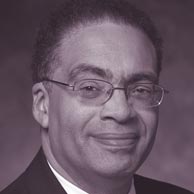
McCrary, Victor
Technology innovator
McCrary,
Victor

McCrary, Victor
Technology innovator
Victor McCrary, Science and Technology Business Area executive at the Johns Hopkins University Applied Physics Laboratory, was named Scientist of the Year at the 2011 Black Engineer of the Year national conference. In nominating him for the award, Bharat Doshi, head of the Laboratory’s Milton Eisenhower Research Center, wrote, “Dr. McCrary has made outstanding technical and managerial contributions to vital programs for the government. In addition, he has been actively promoting STEM [science, technology, engineering, and mathematics] education among minorities and is a spokesman for the cause nationally.”
In 2000, McCrary received the Commerce Department’s Gold Medal for the development of global standards for electronic books, which paved the commercialization path for today’s e-book readers.
An APL staff member since 2003, McCrary oversees a $10 million internal research portfolio and evaluates research and development projects that fit APL’s strategic objectives. He also maintains relationships within the Defense Advanced Research Projects Agency and has fostered relationships with national and international scientific organizations, including the American Chemical Society, to increase APL’s global presence.
McCrary earned an executive master of science and engineering degree from the Wharton School of Business and the Graduate School of Engineering, University of Pennsylvania, and a doctorate in physical chemistry from Howard University.
-
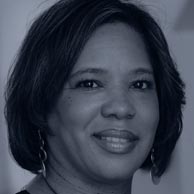
McDonald, Katrina Bell
Answer seeker in black and white
McDonald,
Katrina Bell

McDonald, Katrina Bell
Answer seeker in black and white
A sociologist who joined the Johns Hopkins faculty in 1994, Katrina Bell McDonald devotes her research to studying challenges facing black women, families and children. With colleague Caitlin Cross-Barnet, she is examining the differences of marriage among native blacks, black Africans and blacks of Caribbean descent, including the impact of religion, concepts of “traditional marriage” and the stronger earning power of many black women. Her book, Embracing Sisterhood: Class, Identity, and Contemporary Black Women, was published in 2007. Based on interviews with 88 black women of all ages, it explores how class and social background impact “black sisterhood.”
McDonald’s earlier research delved into such issues as activism among middle-class black women, barriers to kin support for urban black teen mothers and downward residential mobility among disadvantaged black women, as well as how life and educational outcomes are affected by race.
McDonald, a former associate dean of multicultural affairs, is an associate professor and an associate of the Hopkins Population Center and the Center for Africana Studies. She has been actively involved in shaping the university, through the development of new courses and initiatives, including the Center for Africana Studies.
-
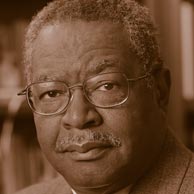
Miles, Douglas L.
Perpetual Activist
Miles,
Douglas L.

Miles, Douglas L.
Perpetual Activist
Bishop Douglas Miles serves as a prominent community and civil rights leader in Baltimore. He pastors at Koinonia Baptist Church and is a co-chair of the advocacy group Baltimoreans United in Leadership Development (BUILD).
Miles was a student at Hopkins in the midst of the turbulence and change of the 1960s, when black students at Johns Hopkins University sought to strengthen their unity and identity. By 1966, when Baltimore native Douglas Miles enrolled as an undergraduate student at Johns Hopkins, he had already witnessed the Montgomery bus boycott and the integration of Little Rock’s schools, and had heard the Rev. Martin Luther King Jr. share his dream for racial justice at the March on Washington.
Shaped by that history, Miles, who received his degree in 1970, is a recognized fighter for social justice, particularly in Baltimore. Miles received an honorary degree from Hopkins in 2018 and over the years has been a key partner in university Baltimore-based initiatives. Bishop Miles died in 2021.
-
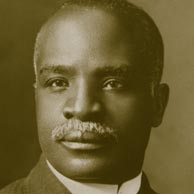
Miller, Kelly
Role model for future heroes
Miller,
Kelly

Miller, Kelly
Role model for future heroes
With a train ticket in hand and dreams in mind, Kelly Miller headed north from South Carolina in 1880 and into a life as a successful mathematician, college dean, author and education advocate. Along the way, he became Johns Hopkins University’s first black student. Born in 1863 to a free man and a slave woman, Miller drew inspiration from what he saw as his own “band of heroes,” northern teachers who had come south to teach black children after the Civil War. A scholarship allowed Miller to attend Howard University, which in turn led to a part-time job with prominent mathematician Simon Newcomb.
After Newcomb became a Johns Hopkins faculty member, Miller sought his assistance in pursuing graduate studies at the university. His application to graduate school in 1887 prompted the college president and trustees to consider the founder’s Quaker background and his commitment to a hospital and university open to all. Miller’s application served as a mirror, forcing university leadership to confront their values and principles, and though there would be many years between Miller and the next black student, Miller’s admission helped open the door for all students of color at Johns Hopkins.
Although financial circumstances prevented Miller from completing a JHU degree, he returned to Howard, earned a master’s degree and a law degree, and built an illustrious career. Never forgetting his “band of heroes,” Miller himself became one, a tireless supporter of quality education for blacks. He died in 1939.
-
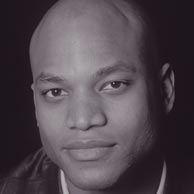
Moore, Westley “Wes” W. O.
Author of his own success
Moore,
Westley “Wes” W. O.

Moore, Westley “Wes” W. O.
Author of his own success
At the same time that the local media were telling the story of Wes Moore, on his way to Oxford University as the first black Johns Hopkins University student to become a Rhodes Scholar, they were telling another story, too. This second story, which attracted far greater media attention, was of another Wes Moore, a young man from the same neighborhood, almost the same age, but this one was headed to prison to serve a life sentence for killing an off-duty police officer.
Struck by the difference in their destinations, Moore the Rhodes Scholar sent a letter to Moore the inmate and a relationship grew, ultimately forming the foundation of The Other Wes Moore, a New York Times best-seller published in 2010.
Even before his book catapulted him to national attention, Moore was on the path to success. After graduating with a bachelor’s degree from Johns Hopkins in 2001 and studying at University of Oxford as a Rhodes Scholar, he became a U.S. Army Reserve captain and completed a combat tour of duty in Afghanistan, helping to manage the American strategic support plan for Afghan reconciliation. Back home after his tour, he was soon appointed a White House fellow and served as a special assistant to former Secretary of State Condoleezza Rice. A stint as a senior associate with Citi Investment Banking followed, and Moore now works as the host of Beyond Belief on the OWN network.
Moore is a member of the university’s board of trustees. He also continues to impact Johns Hopkins through an organization he founded, called STAND, which is based at Johns Hopkins and provides services and inspiration to Baltimore youth involved in the criminal justice system.
-
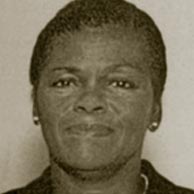
Moore-Duggan, Toni
Champion of Change—Black Faculty and Staff Association Founder
Moore-Duggan,
Toni

Moore-Duggan, Toni
Champion of Change—Black Faculty and Staff Association Founder
The Black Faculty and Staff Association (BFSA) came together, as so many advocacy groups do, over lunch and a conversation. Lunch was at the Polo Grill, then a restaurant across from Homewood Field, and the people who had gathered to talk were black senior staff members concerned about the lack of support for people of color at Johns Hopkins.
Toni Moore-Duggan, one of the participants, recalled how that lunch and subsequent discussions among the staff members led to their decision in 1995 to establish the BFSA.
“After graduating from Johns Hopkins and while working there, it became evident that there was no voice or forum for black people having difficulties here,” said Moore-Duggan, a certified nurse practitioner who worked at the institution for years.
At first, Moore-Duggan said, she and the other staff members were not sure if anyone would buy into efforts to create a forum for people of color, but they did. Seventeen years later, the group is not only going
strong but has expanded its mission: to help foster a culture of collaboration by promoting and enhancing the identity and professional welfare and growth of faculty, staff and students through collaborations, community service, education, research and cultural activities. The BFSA has also charged itself with being a crucial resource for the continued success of Johns Hopkins through the development and cultivation of relationships with key leaders of the institution.
Toni Moore-Duggan is a certified nurse practitioner who worked at Johns Hopkins Hospital in HIV/AIDS vaccine research. She also worked in the trauma unit of the hospital’s emergency room and at the Student Health and Wellness Center. After leaving Johns Hopkins, Moore-Duggan worked extensively with individuals in and leaving the prison system, as well as those struggling with substance abuse and living with mental illness. In her present position, she administers clinical services for Mosaic Integrated Health, a program based at Mosaic Community Services Inc., in Baltimore.
-
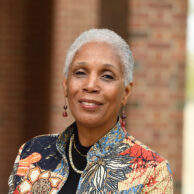
Morris, Sharon
Curator of Black Excellence
Morris,
Sharon

Morris, Sharon
Curator of Black Excellence
Native Baltimorean and librarian Sharon Morris joined Johns Hopkins in 1992 and gravitated to the Black Faculty and Staff Association soon after it formed. She embraced its mission to advance and improve the situation for people of color at the university, encouraging them to use their skills to accomplish goals with impact. “It’s a group of people who really want to see change and work for it,” Morris asserts. “My active participation in the BFSA, collaborating closely with like-minded peers, was a factor in my remaining at Hopkins.”
Beyond her professional responsibilities at the Sheridan Libraries, Morris has held numerous positions and offices in the BFSA. Perhaps her most outstanding contribution has been initiating, steering, and sustaining efforts that evolved into The Indispensable Role of Blacks at Johns Hopkins. The project began in 2003 when the Black Student Union asked a colleague of Morris’s how the Eisenhower library was celebrating Black History month. Morris brainstormed and worked with others to recruit faculty and staff to participate in a multi-year oral history project called the History of African Americans at Johns Hopkins where undergraduate students recorded and transcribed for academic credit interviews with important Black alumni, faculty, and staff members. Morris notes that the original purpose was “to bring to the university’s attention these talented and sometimes overlooked individuals, to know there was this depth of talent in Black faces.”
The original website demonstrated that greater visibility of the successes of Black members of the Hopkins community could help with student, faculty, and staff recruitment and retention. With encouragement and support from BFSA presidents and University President Ron Daniels, Morris chaired hard-working committees that produced traveling exhibit panels featuring photographs of individuals and groups whose stories offer insight into the achievements of African Americans associated with Johns Hopkins University and Medicine. “Indispensable was the term we decided best described what we were trying to do,” Morris remembers, recounting how the title Indispensable Role of Blacks at Johns Hopkins was chosen. The exhibit panels are on display on several Hopkins campuses, vividly illustrating the excellence to which Black people aspire that the wider culture often works hard to deny.
Before her retirement in 2022, Morris was director of the Washington, DC, Regional Libraries for Johns Hopkins, delivering services, providing research support, designing and teaching library instruction and research skills for faculty and students at three off-campus locations, as well as online graduate students. Under her leadership, one of her projects, Avoiding Plagiarism, was adopted as a required learning module for students in several schools. In her professional life, Morris also saw the need and helped establish an informal network of Black librarians in Maryland. The group is collaborating to form statewide an official Black caucus within the ranks of the Maryland Library Association, with Morris serving as its inaugural president. “I remain involved in highlighting the role and value of Black accomplishments,” she notes, perhaps proving that she is, herself, indispensable.
-
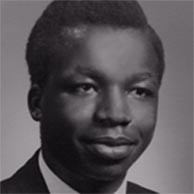
Nabwangu, James F.
Son of Africa, pioneering neurosurgeon
Nabwangu,
James F.

Nabwangu, James F.
Son of Africa, pioneering neurosurgeon
When he was a freshman in college, James Nabwangu read an article in Life magazine about how difficult it was to gain entry to the Johns Hopkins School of Medicine. Nabwangu didn’t know at the time that the school had never accepted a student of African descent. He simply viewed attending Johns Hopkins as another potential challenge in his life.
He had already overcome the challenge of moving from a rural village in West Kenya to attend college in Indiana. And he had already proved wrong a college counselor who told him that despite his outstanding high school academic record, he was not well-suited for a career in medicine or the sciences.
Nabwangu did, indeed, contradict the naysayers, and in 1967 became one of the first two blacks—and the first African—to graduate from the Johns Hopkins School of Medicine. Although he could not get a haircut or eat in restaurants around the school, Nabwangu enjoyed his time at Hopkins. He found that many of his classmates did not know what to think about his African heritage. He , also found that the university supported him when a Kenyan ambassador attempted to prevent his study of neurosurgery because of Kenya’s need for generalists not specialists.
After Johns Hopkins, Nabwangu moved to Canada for postgraduate studies at the prestigious Montreal Neurological Institute. A fellow of the Royal College of Surgeons of Canada and a diplomate of the American Board of Neurological Surgeons, Nabwangu currently practices neurosurgery in Rapid City, South Dakota.
-
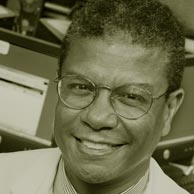
Nichols, David G.
Medical school reformer
Nichols,
David G.

Nichols, David G.
Medical school reformer
David G. Nichols was literally born into education – on the campus of the Hampton Institute in Virginia. He then moved to Germany at age 7 when his father, an English professor and Fulbright Scholar, accepted a position at Freie University. Nichols knew even at that young age that he wanted a career in medicine. As life would have it, his career has focused on both medicine and education.
In 1969, the social changes taking place in the United States drew Nichols back from Germany. He went to Yale University and Mt. Sinai Medical School and began looking for faculty positions. He initially left Johns Hopkins off of his list of possibilities because he had heard it was unfriendly. But on a visit to Baltimore he found that Johns Hopkins was “the most vibrant, the most exciting, the most stimulating… and most welcoming place.”
Nichols joined the faculty at Johns Hopkins in 1984 and in 2000, he was named vice dean for education at the School of Medicine. In this role he oversees undergraduate, graduate, residency, postdoctoral, and continuing medical education programs, and the Welch Medical Library. His initiatives include increasing the use of technology in teaching medicine, reforming the school’s curriculum, launching a collaboration to build an academic medical center in Malaysia, supporting the recognition of education in tenure and promotion guidelines, overseeing the design of a new $50 million Armstrong medical education building and enhancing diversity.
In addition to his administrative post, Nichols is the Mary Wallace Stanton Professor of Education and a professor of anesthesiology and critical care medicine. He has been the editor-in-chief of leading textbooks in pediatric critical care medicine and has edited Rogers Textbook of Pediatric Intensive Care and Critical Heart Disease in Infants and Children.
-
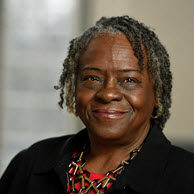
Norris, Lynnise V.
Valiant Financial Facilitator
Norris,
Lynnise V.

Norris, Lynnise V.
Valiant Financial Facilitator
Lynnise Norris is not one to shy away from difficult conversations. An accounting supervisor in the university’s finance division, she relishes her job tracking all of the government funding the university takes in for research and education. When she’s not crunching numbers, Norris is thinking up ways to help improve the plight of her fellow Blue Jays. For that, her colleagues and fellow members of the Black Faculty and Student Association (BFSA) are grateful.
For two decades, Norris has been a guiding force and staunch supporter of people of color who study, teach, and work at the Johns Hopkins University. Elected in 2017 to serve a two-year term as president of BFSA, she has made countless contributions to the black experience at Johns Hopkins as well as to that of others from different ethnic, cultural and religious backgrounds. She’s made these contributions at the risk of the alienation that can sometimes come with sticking one’s neck out to shine a light on inequities and challenges in the workplace. “I’m not one to stand in the background and let things be,” she says. “If you care about people, you try to make a difference, and I care about people.” Norris, who earned a bachelor of science degree in accounting from the University of Baltimore, a master’s degree in science marketing from JHU’s Carey Business School, and a post-graduate certificate from the Carey School, is a lifelong Baltimore resident. She and her fellow BFSA members have worked with senior leaders to improve the university’s climate. “A lot of people just leave rather than stay and fight for what they want or need. It’s hard for people to stand up. They’re afraid they will be blackballed and won’t move up in their careers. I get it, it’s hard, Norris said. “I would love to stand in the background, but that’s not me.”
Norris’ dedication to advocacy at Johns Hopkins resulted in the implementation of the Finance Diversity Mentor Program, a 10-month initiative designed to connect employees in finance roles throughout the university with senior leaders who serve as mentors. The program, which ended in April, sought to expose emerging finance professionals to various opportunities in finance. “I wanted a way for people of color, especially young black men, to see a path forward in finance,” said Norris. “When you come in my department you don’t see black men.”
-
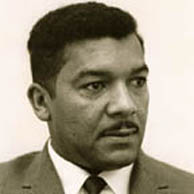
Owens, Ronald C.
Facilitator of Success
Owens,
Ronald C.

Owens, Ronald C.
Facilitator of Success
Ronald C. Owens was only at Johns Hopkins University for four years, but in that time he did a lifetime of good. As an admissions officer for Hopkins from 1969 to 1973, Owens traveled the East Coast recruiting young African American men and women who could succeed at Hopkins. Using a strict methodology, Owens along with his fellow admissions officers, would meet with prospective students to ascertain their goals and quality of their character. He reviewed the curriculum at their high schools to determine if they were prepared to take on the rigor of a Johns Hopkins education. There weren’t many black students on the Homewood campus at the time, and Owens was pleased to have a role in diversifying the university’s student body. “I like to think that we opened the door for a number of African American students who came through Johns Hopkins,” he said. “We were able to bring them here where they could work to succeed. We were facilitators of success.”
Owens was employed at Hopkins at a time of great change. The university went co-ed while he was there and the complexion of the campus started to change. In his admissions role, he had a hand recruiting a number of African American students to the school. Owens is reluctant to take sole credit for his work. It was a collective effort among all the admissions officers, as well as the administration, faculty, staff and the students themselves, he said.
While his work focused on students of color, Owens’s approachable style made him a favorite among students of every hue, as was evident when white students on campus asked him to be the coach of their G.E. College Bowl team, the national radio and TV quiz show that aired in the 1950s and 1960s.
Owens was an early achiever. In 1952, he was awarded a Ford Foundation Scholarship to Morehouse College where, at age 16, he enrolled for two years. He earned his undergraduate degree at Arkansas AM&N. In 1959, he was drafted into the U.S. Army, and later honorably discharged.
Now retired, Owens is as proud of his time at Hopkins as he is about the career he built for himself after he left the university. While working full time at Hopkins, Owens attended the University of Baltimore Law School where he was named Notes & Comments Editor of the University of Baltimore Law Review, making him the first African American to hold the position.
After obtaining his degree, he joined the Baltimore City State’s Attorney’s office as a prosecutor. He then became assistant city solicitor before serving as legislative assistant to former Maryland Gov. Harry Hughes. Around this time, he returned to Hopkins to serve as a pre-law advisor to upperclassmen considering careers in the legal field. In 1980, Owens was appointed associate general counsel of ACTION, a federal volunteer program. He retired in 1994 as associate general counsel for the Peace Corps.
Owens was the first African Americans to serve in many of the positions he held. He’s proud of the distinction, but is hesitant to dwell on it. “It’s not important that someone is the first at what he does,” he says. “It’s what a person does with that first that matters.”
-
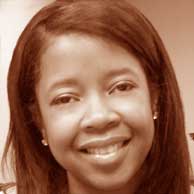
Paul, Nicklaine
Compassionate pain reliever, health care advocate
Paul,
Nicklaine

Paul, Nicklaine
Compassionate pain reliever, health care advocate
Diseases rise and fall from public attention. Sickle cell, for example, is no longer in the forefront of the news, but the excruciating bouts of pain it causes are at the center of the lives of 100,000 Americans, most of them African American, and their families. In 2008, the leadership at Johns Hopkins opened the Sickle Cell Infusion Center to address the needs of adults living with sickle cell disease. That same year Nicklaine Paul moved from Connecticut to Baltimore, joined the center’s staff and began making a positive difference in the lives of its patients and workers.
As the lead clinical nurse at the Sickle Cell Infusion Clinic, Paul is known for her depth of compassion and empathy and for her dedication to ensuring that the center is both efficient and patient-centered.
With Paul as a team leader, Johns Hopkins Sickle Cell Infusion Center has decreased hospital
admissions and readmissions for adults living with sickle cell disease. Paul presented the center’s successes at a national meeting of the Sickle Cell Disease Association of America, and her presentation generated interest from other centers throughout the country that would like to create similar models of care. The nursing care policies and protocols Paul developed for treating sickle cell patients in acute pain are now used as a model for other similar clinics at Johns Hopkins and in other institutions throughout the United States.
Beyond policies and protocols, Paul models for other staff the kind of attention and support patients seek. Many patients at the Sickle Cell Infusion Center have said that Paul is the first nurse who truly understood their disease and was able to make them feel safe and comfortable in the midst of a pain crisis.
-
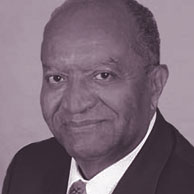
Pierre, Percy A.
Diversity engineer
Pierre,
Percy A.

Pierre, Percy A.
Diversity engineer
As a student at the University of Notre Dame, Percy A. Pierre helped integrate restaurants in South Bend, Indiana. As a higher education administrator, he continues to ensure better integration of the engineering field.
Since becoming the first black student to earn a doctorate in electrical engineering at Johns Hopkins University in 1967, Pierre has built an illustrious career. In addition to being highly regarded for his research in signal processing, he has served in a wide range of government and higher education administrative posts, including White House fellow, dean of the College of Engineering at Howard University, assistant secretary and acting secretary of the Army, president of Prairie View A&M University and vice president of research and graduate studies at Michigan State University.
As a professor of electrical and computer engineering at Michigan State, Pierre created and directs the Sloan Engineering Program. This initiative recruits, mentors and helps fund domestic engineering doctoral students, with a focus on underrepresented groups.
Pierre is particularly well-known as the architect of a successful national effort to increase the number of minorities in engineering. He works with the National Academy of Engineering and the Alfred P. Sloan Foundation, which awards grants to support original research and education in science, technology, engineering, mathematics and economics.
-
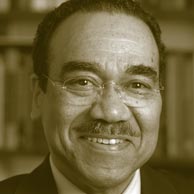
Roulhac, Edgar E.
University growth leader
Roulhac,
Edgar E.

Roulhac, Edgar E.
University growth leader
For more than 30 years, Ed Roulhac lent his expertise to the growth of Johns Hopkins. He joined the university in 1978 as the first assistant dean for students and continuing education at the School of Public Health, from which he holds a Master of Public Health degree. In 1986, he moved to the provost’s office, where he guided and directed expansion of the university’s Washington, D.C. Center and was the founding director of the Johns Hopkins Montgomery County Campus. From 1993 until his retirement in 2011, Roulhac served as the university’s vice provost for academic services, with broad academic planning oversight and stewardship for advancement of JHU’s academic programs and key health professional service centers and institutes. In addition, he managed several university-community partnerships, including the Johns Hopkins Urban Health Initiative and K-12 education outreach programming.
Lloyd B. Minor, provost and senior vice president for academic affairs at Johns Hopkins, said of Roulhac, “His accomplishments during nearly 34 years of service are staggering, yet each has the imprint of his integrity, impeccable standards and unwavering commitment to the mission of The Johns Hopkins University.”
-
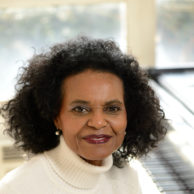
Rowe, Devonna
An Operatic Artist for All Ages
Rowe,
Devonna

Rowe, Devonna
An Operatic Artist for All Ages
Devonna Rowe has traveled the world as an opera singer and arts educator, bringing her voice to theaters and opera houses in such places as Europe, Africa and Asia. A classically trained singer with an extensive range, her operatic roles include the Countess in Mozart’s “The Marriage of Figaro,” Clara in Gershwin’s “Porgy and Bess,” and La Zia Principessa in Puccini’s “Suor Angelica.”
However, it’s her role as voice instructor to students of all ages at Johns Hopkins Peabody Preparatory that Rowe counts among her proudest roles. “At Peabody, it’s about working with people at all levels to help them not only develop their vocal skills but their musical skills as well.” It’s also about giving back in recognition of those who were instrumental in her development as an artist and music educator.
A native of Wilson, N.C., Rowe grew up singing in church where she sang her first solo at the age of 3. During high school, she studied and performed in Los Angeles, California. She went on to receive an undergraduate degree in music education and a masters and doctorate in vocal performance. Along the way, Rowe received a music fellowship from opera singer Leontyne Price and began a teaching career that would span more than three decades and include stints at the University of North Carolina at Chapel Hill, Aspen Music School, Vanderbilt University, and Morgan State University.
Rowe cites her former students who have earned graduate degrees in voice from Yale University, the Julliard School of Music and New York University as success stories. These students have gone on to professional careers performing with the Washington Opera, the Opera Theatre of Saint Louis as well as Off Broadway.
Rowe’s career extends beyond teaching voice. In addition to being on Peabody Prep’s faculty for the past 13 years, she is a member of the Black Faculty and Staff Association. A specialist in Integrated Arts Education, she works in Baltimore and throughout Maryland with students in grades K-12 teaching youngsters about African American history through language arts, music, dance and improvisation.
Working as a consultant for the John F. Kennedy Center, Rowe has helped to create programs that have had an impact on arts education in the United States. Most recently she developed a summer program for youth at the Hosanna School Museum, a historic site that was the first public school for African Americans in Harford County Maryland.